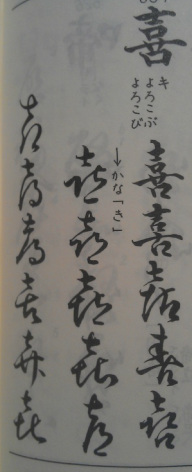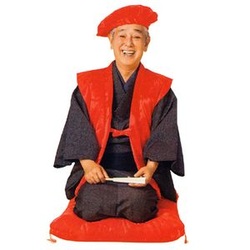In my very first post I wrote about special Japanese birthdays. In the comments a brief discussion about the reason for choosing specific kanji for the birthdays started. One of the characters, 喜, bears little or no resemblance to 七十七 (77), but supposedly (i.e. according to the source I used) it is supposed to resemble the handwritten form. I was therefore requested to upload a picture of the handwritten kanji. I found this in my kuzushiji-dictionary:
The one on the bottom left might pass as 七十七. It is of course also important to realize that the author of the source I used might be way off, and that the reason for calling the 77th birthday 喜寿 might be something completely different. Nevertheless, the picture is uploaded and you can judge for yourselves.
Sources:
Kodama, Kota. Kuzushiji Yorei Jiten. Tokyo: Kondo shuppansha, 1980.
Sources:
Kodama, Kota. Kuzushiji Yorei Jiten. Tokyo: Kondo shuppansha, 1980.


 RSS Feed
RSS Feed
